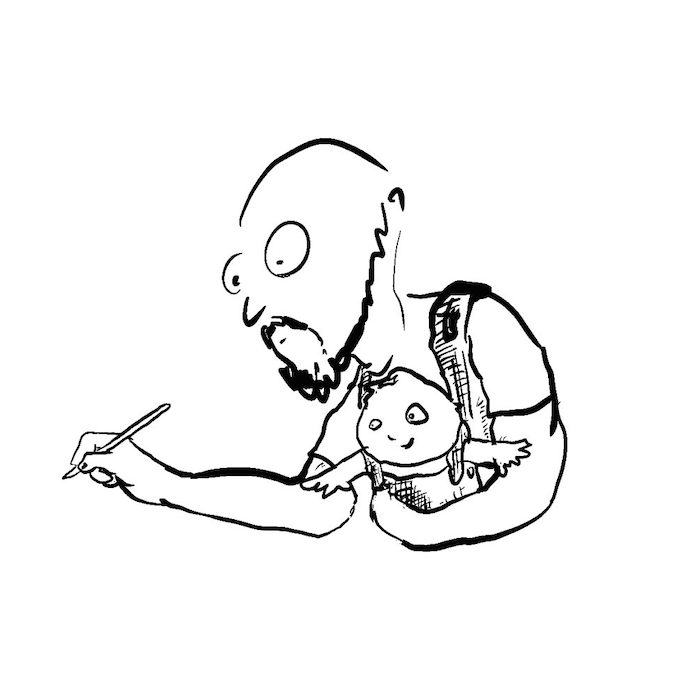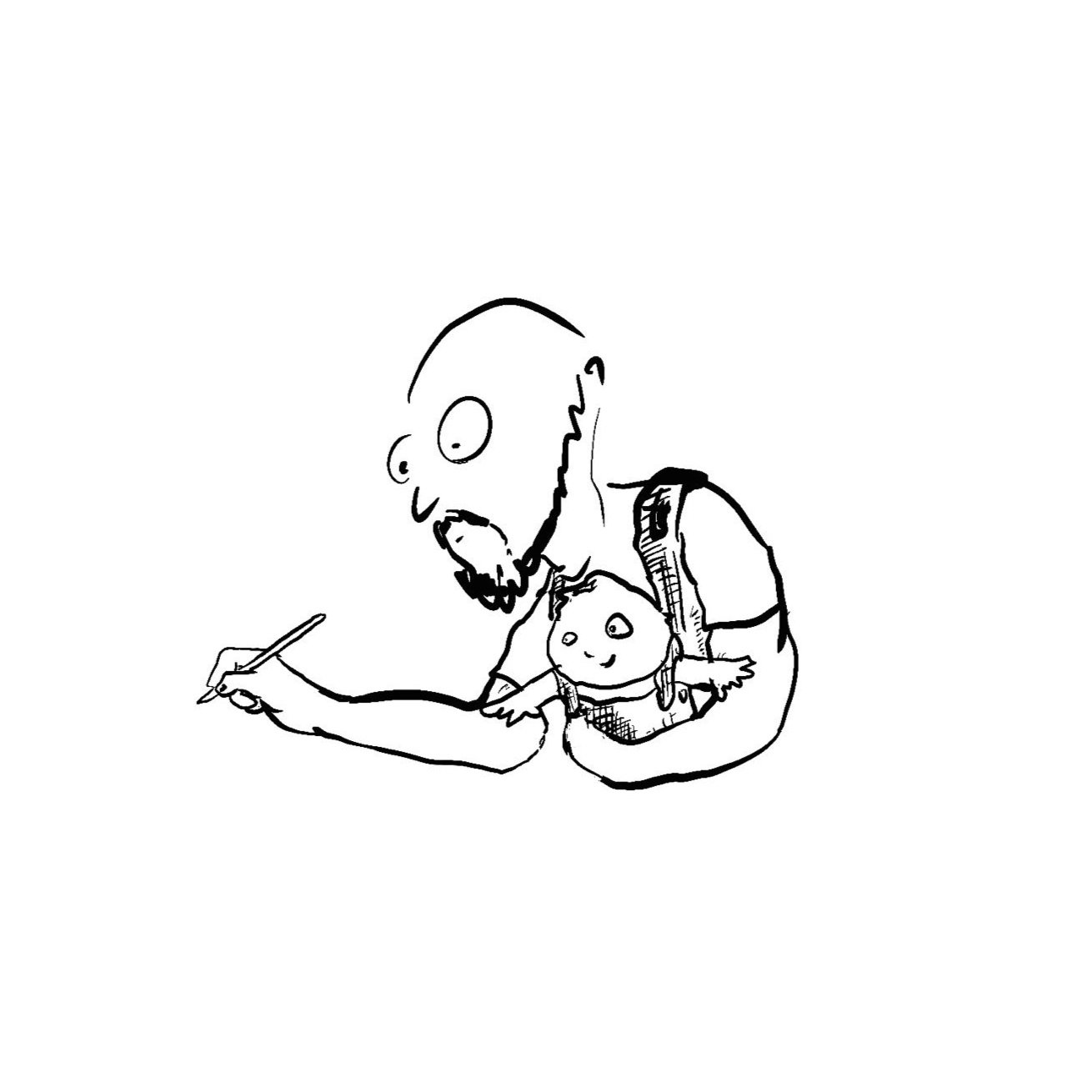The Not So Sweet Inbetween
She's a frail middle aged woman in a motorized wheelchair and she called because her teenage sons are stressing her out. When we get there, she's got a million and a half things she needs done: get the cops here for a report, bring me my laptop, call my neighbor, ask him to come watch the kids, there's paperwork on the fridge, find it please. Oh and I'm having palpitations. Yeah, usually when the actual medical complain is an afterthought, our job has a lot more to do with bearing witness than treating patients. Unless it's a denial thing. Either way, we go about the business of checking her vitals and trying to get her ready to go while she flails her arms, sending her tween daughter on little errands around the building. She has no complaint, not even palpitations any more, she's just irked about the boys and wants to make reports, but when we throw the monitor on her heartrate is a whopping 188 beats a minute, which is exactly 88 too many beats more than should be happening in a minute. It's called Supraventricular Tachychardia and it means two things: it can just up and stop at any ol' minute and it's not doing much good pumping going that fast. It's not the worst arrhythmia for a person to be in, it can in fact be somewhat sustainable as evidenced by her barely registering there's a problem. But it can also kill you quick.My partner mutters that we have to use electricity and technically, he's right. The protocol for this delineates between Stable and Unstable, based on the blood pressure and hers is crap: 88/40. She's unstable; the protocol wants us to sedate and shock, immediately. Shocking means sending a large amount of electricity through her upper body with the goal of restarting her heart into a more sustainable rhythm. It hurts like a mothafucka yes, but more importantly when you jolt the heart so you're very likely to loosen up any clots hanging around and send them directly to the brain, causing a stroke. Bad. And if there's one type of person that has blood clots chilling in their ventricles it's a person who goes into arrhythmias. Why? Because all that not-so-hot pumping leaves blood around and the blood coagulates and voila: clots.I'm of the If-It-Ain't-Broke-Don't-Fix-It school of paramedicine, and you could well make the argument that she is quite broke with a heart going that fast, and you'd be right. But we also have a saying: Treat the patient not the monitor. And it's a good saying. It doesn't mean the EKG's wrong or that her rate doesn't need to be corrected but there's other factors to consider in painting the full picture. How her body's compensating with a faulty heart rate tells you a lot about what's going on. She's not short of breath, has no chest pain, no dizziness, nausea, discomfort; she's not bleeding from any strange orifices, not coughing or acting crazy. She's ok. Her pressure is low, yes, and that's one of those really gamechanging vital signs, but she's also tiny and without knowing a baseline pressure for her it's impossible to say how low she is relative to herself.So we hold off. Cops come, they take their report as we get the stretcher ready and mutter back and forth at each other about what to do. Her sons poke surly faces out of the apartment and the cops go in to scold them. The neighbor shows, a potbellied Guyanese cat that looks like he's been through this routine many times before. Lil mama finds her mom's laptop and we get on our way. Now we're in the ambulance and we recheck the blood pressure and glory! It's 94/60. Still low but not technically Unstable Low. Which is great. Her heart's still taching away at 190 though; not great. Not great at all. And now...ha...now we're at another crossroads. Because if the patient's Stable technically we're supposed to then treat with meds, all of which are used only on Stable patients in part because they lower the blood pressure. One of them stops the heart entirely for a breathless couple seconds before restarting it again, hopefully at its normal rate. So she's technically not Unstable anymore, but her pressure's still waaaay low to be giving something that'll potentially drop it any more. She's in between.She's also laughing and carrying on about her asshole sons, now relieved to be out the apartment and on the way to the hospital. Amidst all this back and forth, she's managed to pull out the IV we placed in the one usable vein she had, effectively mooting any confusion about whether or not to give her meds, since anything we woulda given woulda gone through there. We zip to the hospital good and quick, shaking our heads at the way things go...
Yeah, usually when the actual medical complain is an afterthought, our job has a lot more to do with bearing witness than treating patients. Unless it's a denial thing. Either way, we go about the business of checking her vitals and trying to get her ready to go while she flails her arms, sending her tween daughter on little errands around the building. She has no complaint, not even palpitations any more, she's just irked about the boys and wants to make reports, but when we throw the monitor on her heartrate is a whopping 188 beats a minute, which is exactly 88 too many beats more than should be happening in a minute. It's called Supraventricular Tachychardia and it means two things: it can just up and stop at any ol' minute and it's not doing much good pumping going that fast. It's not the worst arrhythmia for a person to be in, it can in fact be somewhat sustainable as evidenced by her barely registering there's a problem. But it can also kill you quick.My partner mutters that we have to use electricity and technically, he's right. The protocol for this delineates between Stable and Unstable, based on the blood pressure and hers is crap: 88/40. She's unstable; the protocol wants us to sedate and shock, immediately. Shocking means sending a large amount of electricity through her upper body with the goal of restarting her heart into a more sustainable rhythm. It hurts like a mothafucka yes, but more importantly when you jolt the heart so you're very likely to loosen up any clots hanging around and send them directly to the brain, causing a stroke. Bad. And if there's one type of person that has blood clots chilling in their ventricles it's a person who goes into arrhythmias. Why? Because all that not-so-hot pumping leaves blood around and the blood coagulates and voila: clots.I'm of the If-It-Ain't-Broke-Don't-Fix-It school of paramedicine, and you could well make the argument that she is quite broke with a heart going that fast, and you'd be right. But we also have a saying: Treat the patient not the monitor. And it's a good saying. It doesn't mean the EKG's wrong or that her rate doesn't need to be corrected but there's other factors to consider in painting the full picture. How her body's compensating with a faulty heart rate tells you a lot about what's going on. She's not short of breath, has no chest pain, no dizziness, nausea, discomfort; she's not bleeding from any strange orifices, not coughing or acting crazy. She's ok. Her pressure is low, yes, and that's one of those really gamechanging vital signs, but she's also tiny and without knowing a baseline pressure for her it's impossible to say how low she is relative to herself.So we hold off. Cops come, they take their report as we get the stretcher ready and mutter back and forth at each other about what to do. Her sons poke surly faces out of the apartment and the cops go in to scold them. The neighbor shows, a potbellied Guyanese cat that looks like he's been through this routine many times before. Lil mama finds her mom's laptop and we get on our way. Now we're in the ambulance and we recheck the blood pressure and glory! It's 94/60. Still low but not technically Unstable Low. Which is great. Her heart's still taching away at 190 though; not great. Not great at all. And now...ha...now we're at another crossroads. Because if the patient's Stable technically we're supposed to then treat with meds, all of which are used only on Stable patients in part because they lower the blood pressure. One of them stops the heart entirely for a breathless couple seconds before restarting it again, hopefully at its normal rate. So she's technically not Unstable anymore, but her pressure's still waaaay low to be giving something that'll potentially drop it any more. She's in between.She's also laughing and carrying on about her asshole sons, now relieved to be out the apartment and on the way to the hospital. Amidst all this back and forth, she's managed to pull out the IV we placed in the one usable vein she had, effectively mooting any confusion about whether or not to give her meds, since anything we woulda given woulda gone through there. We zip to the hospital good and quick, shaking our heads at the way things go...

